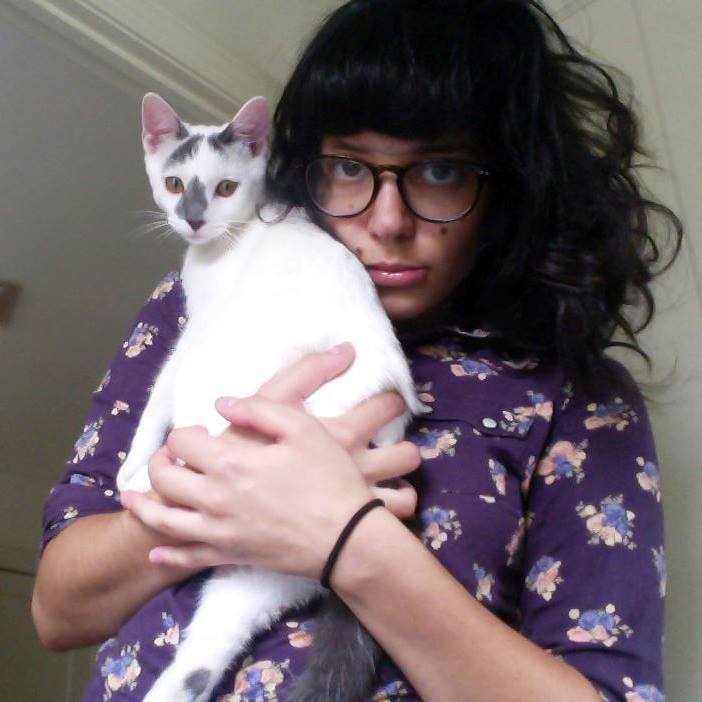Meet the Editors: An Interview with Fiction Editor Reem Abu-Baker

It’s a new year and a new staff here at BWR. We (the editors) interviewed each other so that you (the world) could get a sense of us as editors/readers/weirdos. We’re pleased to meet you!
Interview by BRONWYN VALENTINE
Bronwyn Valentine: Tell me about the last time you read something that shook you up inside.
Reem Abu-Baker: I just finished ZZ Packer’s Drinking Coffee Elsewhere. I’m not typically a huge fan of traditionally structured realism, but Packer’s stories are so well crafted and so fluid and real. They shook me up. I was especially struck by the title story and “Speaking in Tongues,” which both deal with girlhood in ways that are so different, but equally painful and loving and invigorating.
BV: What kind of work does a literary journal do in the world? What kind of work could it do? What kind of work do you hope BWR does this year?
RAB: I guess a lit journal acts as a sort of mouthpiece to say, “These are things that we think matter and should be read.” And if it’s a journal like BWR, which bills itself in a certain way or has a particular aesthetic track record (in our case, experimental, non-realist, lyrical, etc.) then the journal is also participating in the building of a genre. We’re saying “This is what we’ve chosen to represent weird fiction (or whatever) at this particular moment.” I think that’s a huge responsibility, and my hope for BWR this year is that we’re able to live up to that responsibility. I want to publish work that’s innovative, strange, and full of heart; work that challenges dominant narratives and points of view; work that helps us learn or heal or get angry or think about something in a new way.
BV: Tell me about some of your secret small joys.
RAB: This is such a nice question! Currently, wearing bright obnoxious lipstick colors and letting myself play with makeup and just have fun even though I don’t know what I’m doing.
BV: What are you asking yourself as you read fiction/prose submissions? How do you make your decisions as fiction editor?
RAB: The most basic question is: Would I want to read this all the way through if I encountered it published in a journal? Is there that magnetism pulling me forward, keeping me reading? Beyond that, I’m always thinking about what a piece of writing is doing—Why do I want to endorse this? What is it adding? Does it help illuminate something that needs illuminating? Does it help us reimagine a piece of our world, or imagine an entirely new one? Is this putting forth a narrative that I want to perpetuate? Lastly—and I know this sounds cheesy and horrible—but does this come, in some way, from a place of love? I’m in favor of anger and I’m in favor of fiction that’s disturbing or difficult or painful, but I still want it to come from a place of emotion and care.
BV: Who are some people who have had the most influence over your own writing?
RAB: My teachers, both in grad school at UA and in my undergrad at CU Denver. And, of course, my brilliant classmates and friends are probably the most immediately influential. Some other writers whose work has been influential to me: Alissa Nutting, Tom Cho, Kim Hyesoon, Kelly Link, Sofia Samatar, Saleh Saterstrom, and so many more.